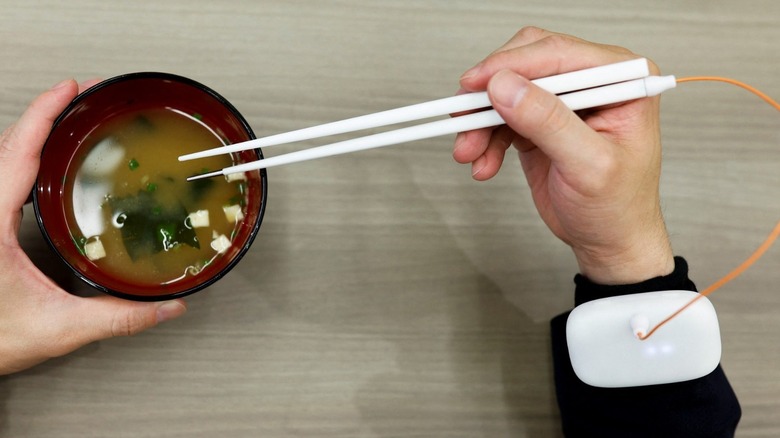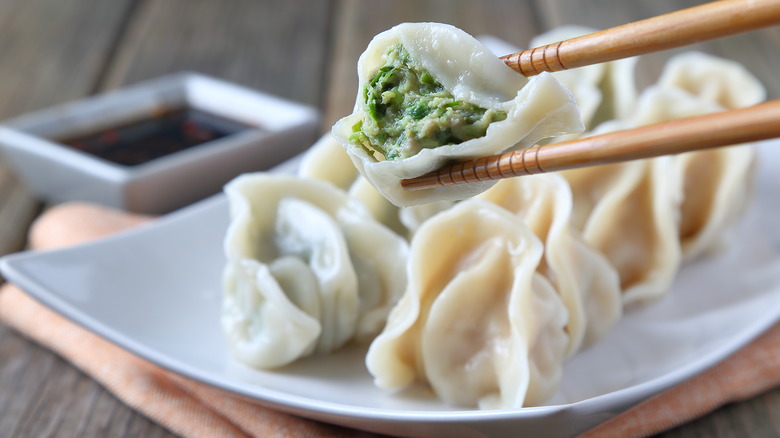Why Twitter Is Fascinated By A Set Of Electric Chopsticks
"Electric chopsticks" would make an incredible band name in the vein of The Electric Prunes. However, when Telegraph Food shared an article on Twitter about how Japanese scientists at Meiji University had invented a unique set of electric chopsticks, almost no one mentioned this possibility. Instead, people were fascinated by the goal behind the chopsticks: to help users adopt a low-sodium diet.
"But Japan has the healthiest and highest life expectancy in the world," one person noted. "Why should they change?" Another thought the focus was misdirected: "Why don't they just use less salt?" they asked. After all, it does seem like a lot of trouble to develop new technology for an issue that could be avoided with a change in diet. Others argued about the health pros and cons of salt, while one person did see sense and said that Electric Chopsticks would be an awesome name for a band. Anyway, here's how the chopsticks would work.
The real point of these electric chopsticks
According to Telegraph Food, Meiji University scientists wanted to tackle health problems, such as high blood pressure, with a tangible resource for low-sodium diets. As some of those Twitter users may be surprised to know, the average Japanese diner eats twice the daily amount of sodium recommended by the World Health Organization. In the scientists' experiment, the electric chopsticks were given to people who were advised to go on low-sodium diets. The devices, connected to a band worn around the wrist, were able to stimulate the sodium ions in the foods they touched, so the eater perceived each bite to be "1.5 times" saltier than it actually was, per CNN. The scientists claimed their findings could help reduce people's sodium intake by 30% — which is significant for a culture whose cuisine relies heavily on salty miso and soy sauce.
As for why these scientists would develop salt-mimicking chopsticks instead of simply advising people to eat less salt, that's because the issue isn't so simple. Not only is salt a key component of many nations' culinary identity, but humans are also naturally addicted to sodium, Slate writes. People can't always choose saltless foods, but inventions like these chopsticks (which could potentially be for sale in 2023) may be able to help them eat less added salt.

